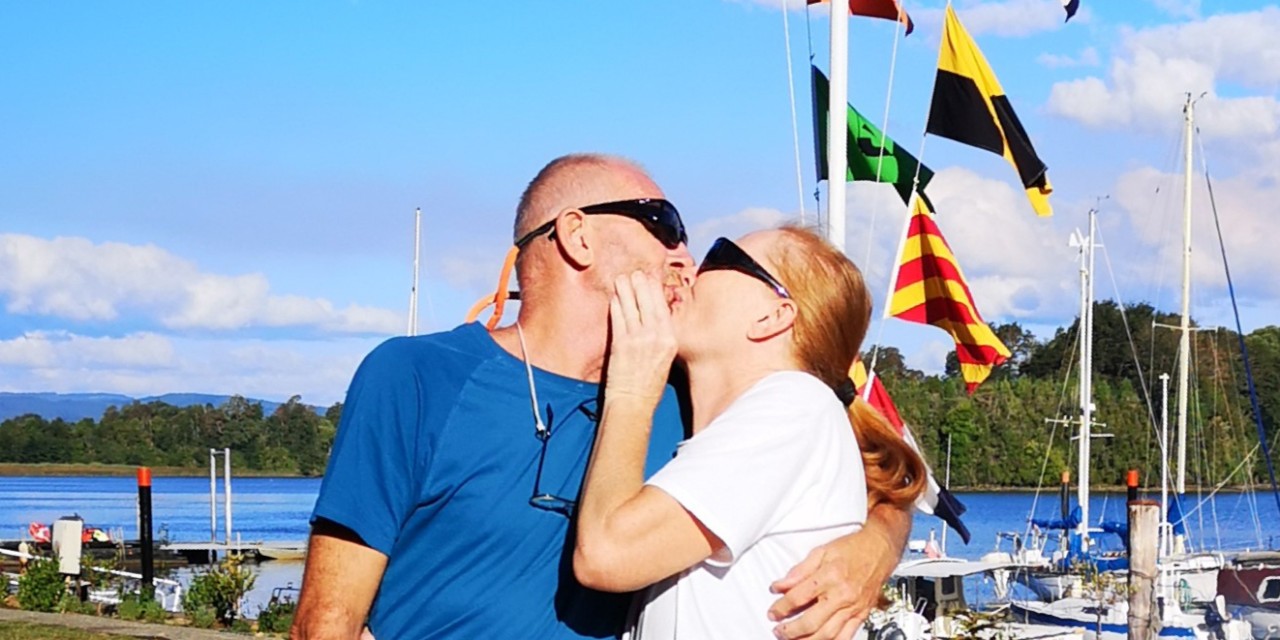Pacific 1 december 2022
01 December 2022
• Huahine
by Wim
Torsdag den 1 december 2022, Fare, Huahine
Vi rodde iland för att slänga de sista soporna, handla lite till eftersom vi kommer att segla lite
längre än vi hade tänkt oss och för att bli av med alla kontanter. Det fanns schalottenlök så vi
köpte ett par stycken (100 kronor/kilot). Jollen städades med färskvatten, torkades, tömdes på luft
och vi gjorde ett försök att få ihop den i väskan. Inte så lätt på ett trångt fördäck men vi lyckades
ganska bra. Sedan stuvades både jollen, SUP:en och tillbehör i gången i akterruffen. Det är en del
mer att göra så vi kommer nog inte i väg vid tolvtiden. Det lär bli vid fyratiden när vi har ätit lunch
och vilat.
Vi släppte mooringen vid halvfemtiden. En fin kväll men sedan ökade vinden till 20-25 knop, dessutom framifrån så livet blev lite jobbiga.
Det är bara att vänja sig eftersom det blir så här ett par dagar tills vi kommer söderut.
CN Live! -- 'What's Next for Ukraine?' November 24, 2022
(videon finns på www.consortiumnews.com och på Youtube)
Scott Ritter, Mark Sleboda, and Tony Kevin joined CN Live! to discuss recent events, the current
situation, and the future of the conflict in Ukraine.
In Moscow: Mark Sleboda, IR & Security Analyst & U.S. Navy veteran in Nuclear Engineering; in
New York State: Scott Ritter, former U.S. Marine Corps intelligence officer & U.N. weapons
inspector; and in Canberra, Australia: Tony Kevin, Ret. Australian ambassador to Poland & diplomat
in Moscow.
Your hosts: Elizabeth Vos and Joe Lauria.
The war in Ukraine began in 2014 as a civil conflict when Russian-speakers in the east resisted a
coup that overthrew a democratically elected president. The post-coup state then launched a war
against the resisters for eight years, a war which Russia entered nine months ago on Feb. 24.
It was an expansion of the fighting that could have easily been prevented. A peace accord was
never implemented by the Western-backed Kiev regime. Instead, NATO armed and trained
Ukrainian forces that included extremist groups. which early this year began amassing at the
conflict line with the east, poised for an offensive, prompting Russia to intervene.
Peace treaties Russia presented to the U.S. and NATO last December, which would have seen
NATO deployments of troops and missiles in Eastern Europe rolled back, were ignored, even as
Russia spoke of a technical-military response. The U.S. got the invasion it wanted and needed.
Without it, it could not have launched its economic, information and proxy war designed to
"weaken" Russia and return it to the servile state of the 1990s. Make no mistake. This is a U.S. war
against Russia. Ukraine is simply the stage on which it is being acted.
However, the war is not going according to U.S. plans. The economic war, intended to bring down
the Russian government, has backfired, with dire economic consequences and growing popular
discontent in the West instead. The information war is being lost outside of territories controlled
by the West - which comprises the vast majority of humanity. And the war on the ground is not
being won.
But the war hasn't gone according to Russian plans either. Moscow sought negotiations with
Ukraine almost immediately upon entering the conflict. In March they had a deal in which Ukraine
would remain neutral and Crimea would be recognized as Russian and Donbass as independent.
But Western leaders, wanting to bleed Russia, stopped it. A restrained invasion, insofar as
invasions can be restrained, is now on the verge of a major Russian offensive. It is being preceded
by widespread Russian strikes against power infrastructure, raising troubling questions about the
effect on civilians.
Despite continuing propaganda that Ukraine is winning the war, Western leaders know what they
are facing: freezing Ukrainians and Europeans and the looming Russian attack. This has led to talks
about talks to end the war, but is it now too late?
Is Russia committed to reabsorbing all of Catherine the Great's imperial conquests in Ukraine or
will keeping Ukraine out of NATO, recognition of Crimea and Donbass as part of Russia and
withdrawal of NATO's forward deployments of men and missiles in Eastern Europe still be enough
for Russia? Is the U.S. and NATO still committed to a long war in the vain hope that it will bring
down the Russian government? - Joe Lauria, editor-in-chief, Consortium News

